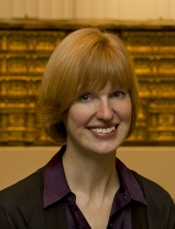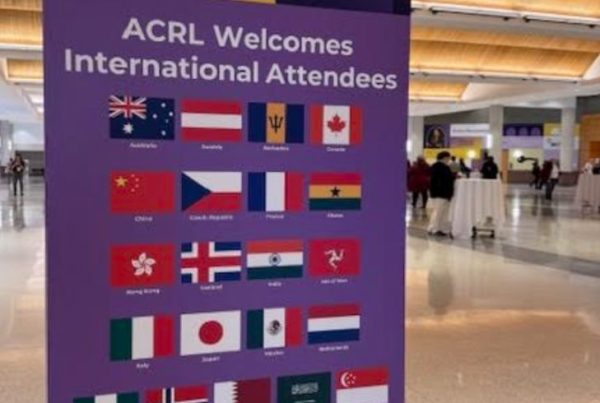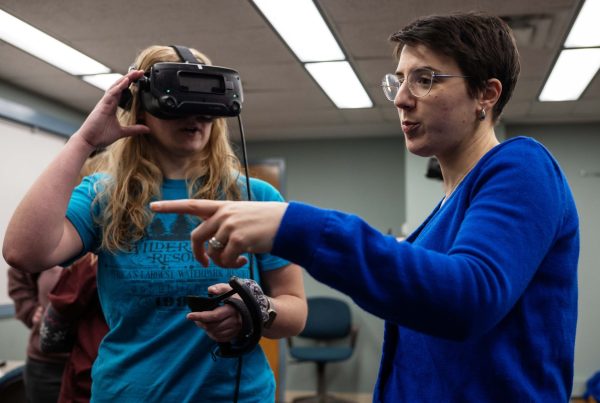by Erinn Aspinall
A trip to the doctor can lead to unexpected news. One thing you might not expect to learn is that your doctor does not have access to the latest medical research.
The University of Minnesota seeks to address this issue through its legislative request to fund the Minnesota electronic Health Library (MeHL), an initiative that would provide equal access to evidence-based clinical information resources for all Minnesotans.
Meeting a need
But there is a ton of health information online already, right? Sure there is, but many of the freely available resources lack the quality control you would like to have when making important healthcare decisions.
What’s more, many of the reliable resources available online provide only general overviews of symptoms and treatments. Missing from these resources are the evidence-based clinical care tools and resources that provide detailed, synthesized information that plays an important role in healthcare.
But my doctor surely has access to this sort of information, right? Not necessarily. Access to the clinical information resources that MeHL would provide is costly, meaning that only a privileged few can use the information resources necessary to support patient care.
This high cost means the majority of our state’s health providers, students and educators, researchers, patients, and caregivers do not have access to the information they need to support their work and training, or to promote patient engagement and informed decision-making.
MeHL by the numbers
MeHL would provide equal access to health information resources, with the potential to create a big impact on the health of our state. Minnesota is home to 220,000 licensed health professionals, over 35 health professions schools, 600,000 family caregivers, and 5 million citizens. This means we could all benefit from improved health outcomes, reductions in health disparities, and lower healthcare costs as MeHL supports evidence-based healthcare across Minnesota.
These numbers are meaningful in illustrating the potential benefit of MeHL. It is the number one, however, that is the most important number in this equation. Each of us will be impacted by a health concern in our life. When it comes to your health, or the health of a loved one, chances are that you would want healthcare decisions to be supported by the best information available.
This reality hit home with one of our librarians, Janice Jaguszewski, who suffered a mild heart attack last October at the age of 48.
“I had no risk factors, my cholesterol was 150, and my blood pressure was normal. I had never smoked and am not diabetic – I exercise regularly and thought I was in excellent health,” said Jaguszewski. “I was shocked, as were my doctors, who could not easily explain why I had a heart attack,” she said.
“I was fortunate that I had access to more advanced information through our library, which helped me understand what had happened to me.” Jaguszewski added, “It is a real concern to me that most people – even a cardiologist I saw – could not get this information.”
Information supports health of all Minnesotans
Minnesota consistently ranks as one of the healthiest states in the nation. But our good health is not distributed equally. Just how bad are the health disparities in Minnesota? A recent Robert Wood Johnson Foundation study found that Twin Cities residents can expect to live much longer than their neighbors. Just 3 miles could equal up to a 13-year life span difference.
“There is the concern that the large integrated networks will have access to lots of good information, but that the small, rural, safety-net providers will fall further behind,” said Phil Deering of Stratis Health. “This creates a divide that is not desirable,” said Deering. “A free and open library could reduce this growing disparity,” he said.
Your support is critical
The quality, clinical-care information that Jaguszewski used to inform her own health care needs would be available to you and to your health providers if MeHL receives legislative funding.
We need your support before and throughout the 2015 legislative session. If good health is important to you, visit our Support MeHL webpage for information on contacting your legislator and other ways to support this initiative.
With a shared understanding that an informed community is a healthy community, let’s build support for MeHL and ensure the continued health of our state.
For more information
Erinn Aspinall, MeHL Project Manager
aspin005@umn.edu




